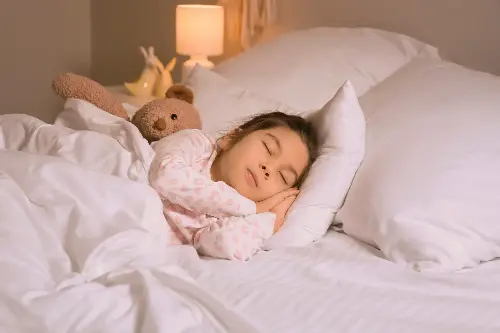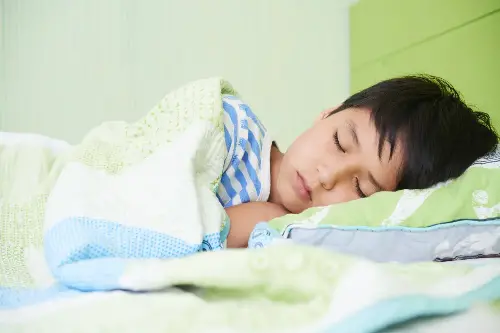In the ever-busy world of parenting, sleep often finds itself at the very bottom of the household priority list. Yet, as research consistently shows, sleep is far more than a welcome nightly escape for tired parents and youngsters alike. In truth, getting enough quality sleep may be the single most underrated key to raising children who are not only healthier, but also sharper and more even-tempered.

THE SCIENCE OF SLEEP AND BRAIN POWER
The developing brain craves rest. While your child is fast asleep, their mind is anything but idle. Sleep is the time when the brain consolidates memories, organises newly learned information, and lays the foundation for stronger cognitive skills.
Remarkably, studies show that primary school-aged children who get the recommended amount of sleep – around 9 to 12 hours per night – consistently outperform sleep-deprived peers on intelligence and reasoning tests. Researchers believe that this is because sleep is essential for the brain’s “remodelling” process, when neural connections are pruned and strengthened, allowing young minds to learn and adapt with greater ease. A well-rested brain is more adept at problem-solving, comprehension and retaining knowledge – all vital skills for success both in and out of the classroom.
SLEEP AND PHYSICAL WELL-BEING
Sleep is the body’s secret weapon for good health, especially in growing children. During deep sleep, the body releases growth hormone, helping muscles and bones develop and repair. A lack of sleep has been connected to weakened immune response, making children more vulnerable to illnesses such as colds and flu.
But there’s more. Research suggests children who regularly miss out on sleep are at a higher risk of developing obesity, diabetes, and even hypertension later in life. This is because insufficient sleep interferes with the body’s ability to regulate hormones that control hunger and metabolism. A well-rested child is more likely to have energy for physical activity, build stronger bones, and maintain a healthy weight.

BEHAVIOUR AND EMOTIONAL BALANCE
Ever noticed how children are more likely to have meltdowns or emotional outbursts after a late night? That’s no coincidence. Sleep and emotional regulation are closely linked. When tired, the area of the brain responsible for impulse control – the prefrontal cortex – is less active, making it far more difficult for children to cope with big feelings or handle stress.
Well-rested children are calmer, more cooperative, and better equipped to navigate the ups and downs of daily life. Studies show good sleepers tend to have more positive relationships with their peers, fewer tantrums, and are generally more resilient in the face of frustration. By simply prioritising a regular bedtime, you are helping your child build the foundation for stronger social skills and a sunnier outlook.
TIPS FOR BETTER SLEEP AT HOME
Given the overwhelming benefits, helping children get enough sleep is a no-brainer – but it’s not always easy. Here’s how parents can smooth the path to dreamland:
- Keep a regular bedtime routine. Consistency tells your child's body when it's time to wind down, making sleep come more naturally.
- Limit screen time before bed. Blue light from tablets, phones and TVs can trick young brains into thinking it’s still daytime.
- Create a calm, cool and dark bedroom environment. A peaceful space helps children feel safe and relaxed.
- Encourage physical activity during the day. Active bodies tend to sleep more soundly at night.
- Listen to your child’s sleep needs. Every child is different – be flexible and adjust as required.

SMALL CHANGES, LIFELONG IMPACT
In our fast-paced world, it’s easy to overlook the power of a good night’s sleep. Yet, the evidence could not be clearer: adequate, quality rest is the secret ingredient to happy, healthy, and smart children. By championing better sleep habits at home, parents are making one of the simplest – and most profound – investments in their child’s future.
So tonight, tuck them in, dim the lights, and know that each hour of peaceful rest is not just recharging their batteries for tomorrow, but is paving the way for a brighter and calmer life ahead.
